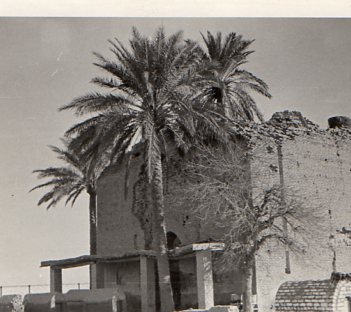The young in the Arab world have sought the bond of humanity that connects us as human beings to be the emblem of their revolution. Their grassroots uprising now sweeping the Arab world is not based on religious affiliation, ethnicity, or political party. It is not secular, religious or nationalist. It is a struggle for human rights, freedom, and democracy that should be the birthright of everyone on the planet.
Their burning desire to be treated with dignity, respect, and to be free requires them to show extraordinary courage in the face of formidable odds, with thousands making the ultimate sacrifice. They demand the right to be participants in shaping a future better than the dark and blighted past and present fashioned by the despots ruling them. Moreover, they realize that exchanging them with another set from the old order of existing parties or religious leaders is not going to produce the fundamental transformation they demand. They correctly conclude that those emerging from the old order are incapable of envisioning a world and a future beyond the narrow confines of nationality, religion and ethnicity.
Another remarkable feature of this uprising is the use of a collective-action principle with individuals, so modest that they refuse the label of leader bestowed on them by western media obsessed by the cult of personality. This is such a surprising and welcome change and very alien in the Arab world I knew. One need only look at the existing dictators with their arrogance and God-like status to appreciate the gulf that now exists between the revolutionary young and the dinosaurs of the Arab world.
" The youth of 25 February movement - Iraq " have issued communiquà � number 1 in Arabic. It states: "Our aim as the youth of Iraq is to build a state that is independent, respects the human rights of all Iraqis, where equality of opportunity is the right of everyone regardless of religion, sect or ethnicity, and with a constitution that guarantees these rights."
In the communiquà � they request that no representative of existing religious, secularist, ethnic, or political parties and authorities take part in their demonstrations. Banners and slogans should be for human rights, dignity and improvements in the infrastructure and services to make life bearable for ordinary Iraqis. They demand an independent Iraq free of American occupation and foreign interference, and a complete overhaul of institutions of the state and governance.
The aims and sentiments expressed above could easily apply to all the uprisings in the Arab world. They also show that the young have no confidence in existing parties and organizations to affect meaningful change that serves their aspirations for a better future. These parties and organizations, in their struggle against colonialism and foreign interference, have over the years brought assorted despots, gangsters and dictators to rule over people whom they have treated as sheep that should be grateful for having a shepherd to rule over them.
On Friday (25 February), tens of thousands of Iraqis with different ethnicities and religious affiliation demonstrated in Baghdad and major cities across Iraq demanding respect for human rights, an end to corruption, sectarianism, and nepotism. Aljazeera reports that 11 people died and scores were injured when security forces used live ammunition against peaceful demonstrators. Western media have underplayed these demonstrations, no doubt in an attempt to spare the blushes of the US and the west.
It is clear that the youth of the Arab world have gone back to first principles in their quest for a better future. They seek a democratic system that is free of corruption and cares about and serves the interests of ordinary people. Western models of democratic government are in need of reform, to move governments away from serving powerful corporations and the military-industrial complex to serving the ordinary citizen. Who knows, the Arab revolution may point the way.





